| |
- In 1970, Irmagard
Flugge-Lotz, was awarded the Society of Women Engineers' annual
achievement award for her contributions to the field of fluid mechanics,
in particular, wing theory and boundary layer theory.
|
| |
- The Association
for Women in Science was established in 1971 to achieve equity and full
participation for women in science, mathematics, engineering, and technology.
Today, there are over 5,000 members, 50 percent of whom have doctoral
degrees.
|
| |
|
| |
- In 1972, 17 percent
of the aerospace workforce was women.
|
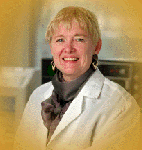 |
|
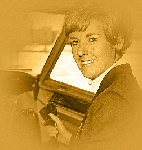 |
- In 1973, Emily
Howell became the first female pilot to fly for a commercial U.S.
airline, Frontier Airlines.
|
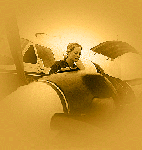 |
- In 1974, the U.S.
Navy selected its first non-combatant female pilots and, in the same
year, the U.S. Army trained its first female pilot, Lt. Sally Murphy.
|
| |
- In 1974, Barbara
Crawford Johnson was awarded the Society of Women Engineers' annual
award for her work assuring the Apollo spacecraft made pinpoint landings.
|
| |
- In 1974, Mary
Helen Johnston, Ann Whitaker, Carolyn Griner, and Doris Chandler
comprised an all-women science team for various experiments at NASA
Marshall. In the late 1990s, Carolyn Griner served as acting
center director at NASA Marshall.
|
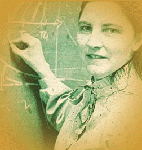 |
- In 1974, Christine
Jones earned her Ph.D. from Harvard and she, and her husband, Bill
Forman, are known for discovering that elliptical galaxies have large
amounts of hot gas that are remnants of the formation of galaxies. This
earned them the American Astronomical Society's 1985 award. http://cannon.sfsu.edu/~gmarcy/cswa/history/jones.html
|
| |
- Frances E. Scott
started her career as a secretary at NASA Marshall and went on to earn
a B.S. in biology. Later, she became a specialist in sterilization methods
for planetary quarantine and an investigator for blood cell experiments
conducted during the Apollo-Soyuz Test Project in 1975.
|
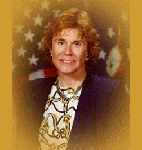 |
- In 1975, Sheila
E. Widnall, Ph.D., was awarded the Society of Women Engineers'
annual award for her contributions in fluid mechanics of low speed aircraft
and hydrofoils. She also conceived and implemented Massachusetts Institute
of Technology's wind tunnel.
http://www.wic.org/bio/swidnall.htm
|
| |
- In 1976, women
are admitted to military academies.
|
| |
- In 1977, the Air
Force selected the first group of females for pilot training.
|
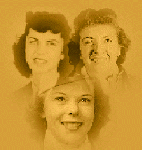 |
- In September 1942,
the Army Air Force (AAF) created the Women's Auxiliary Ferrying Squadron
(WAFS) and appointed Nancy H. Love its commander. Love recruited highly
skilled and experienced female pilots who were sent on non-combat missions
ferrying planes between factories and AAF installations. While WAFS
was being organized, the Army and Air Force appointed Jacqueline Cochran
as director of the Women's Flying Training school where over a thousand
women completed flight training. As the ranks of women pilots serving
the AAF swelled, the value of their contribution began to be recognized,
and the Air Force took steps to militarize them. The Air Force renamed
the unit the Women Airforce Service Pilots. These women served grueling,
often dangerous, tours of duty. Ferrying and towing were risky activities,
and some pilots suffered injuries and were killed in the course of duty.
In 1977, after much lobbying of Congress, the WASP finally achieved
military active duty status for their service.
http://www.nara.gov/exhall/people/wafs2.gif
http://www.nara.gov/exhall/powers/women.html
http://www.nara.gov/exhall/people/women.html
|
| |
- In 1978, women
were chosen as astronaut candidates for the first time. All held doctoral
degrees. Their expertise included medicine, geology, electrical engineering,
physics, chemistry, and biochemistry. Rhea Seddon, M.D., Kathryn
D. Sullivan, Ph.D., Judith A. Resnick, Ph.D., Sally K. Ride, Ph.D.,
Anna L. Fisher, M.D., and Shannon W. Lucid, Ph.D.
|
| |
- The 1978 Inventor
of the Year was Barbara S. Askins, a chemist at NASA Marshall.
|
| |
- "Fortune Magazine"
recognized Olive Ann Beech as one of the "Ten Highest Ranking
Women in Big Business." She co-founded Beech Aircraft in the 1930s.
|





